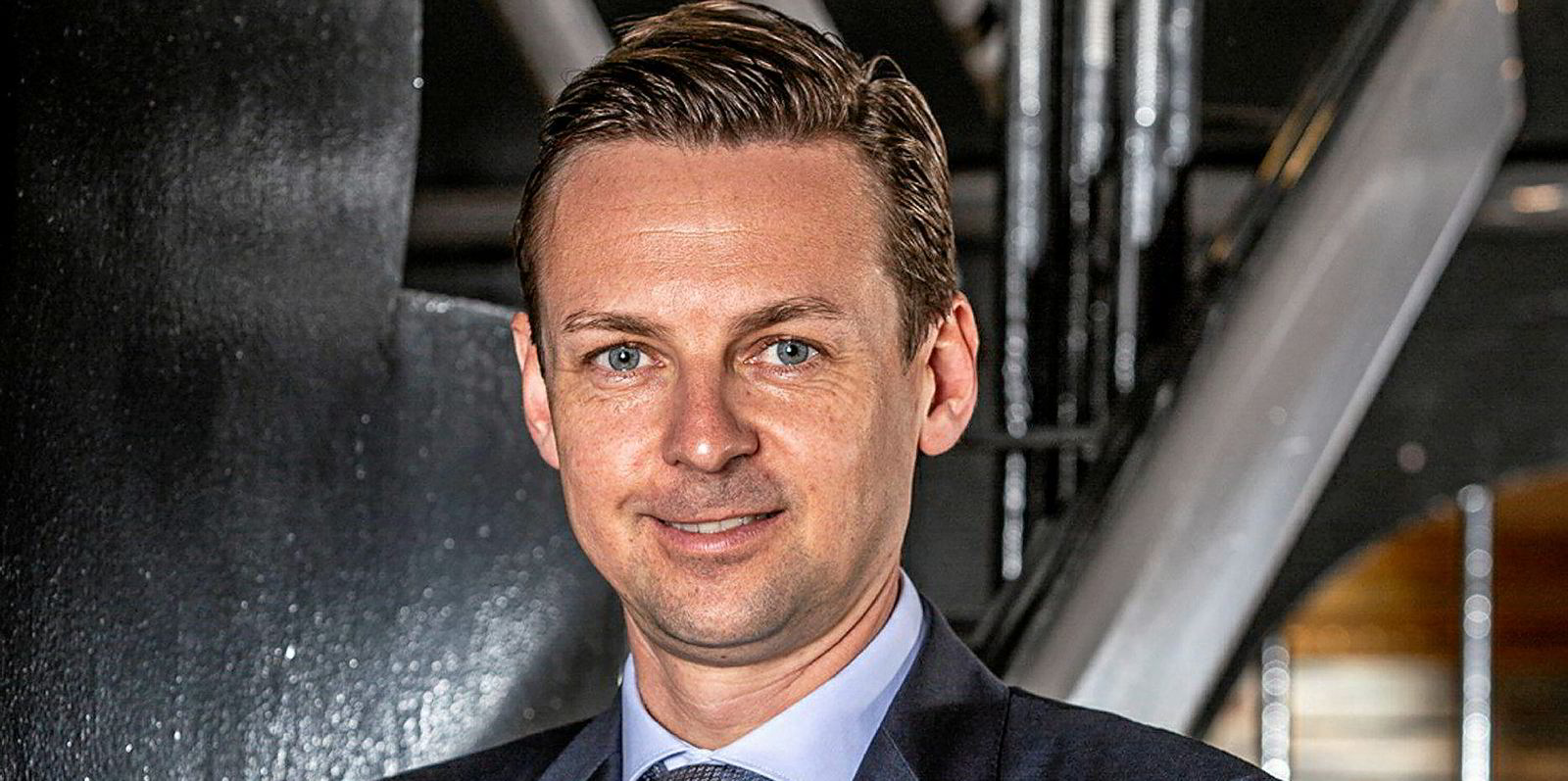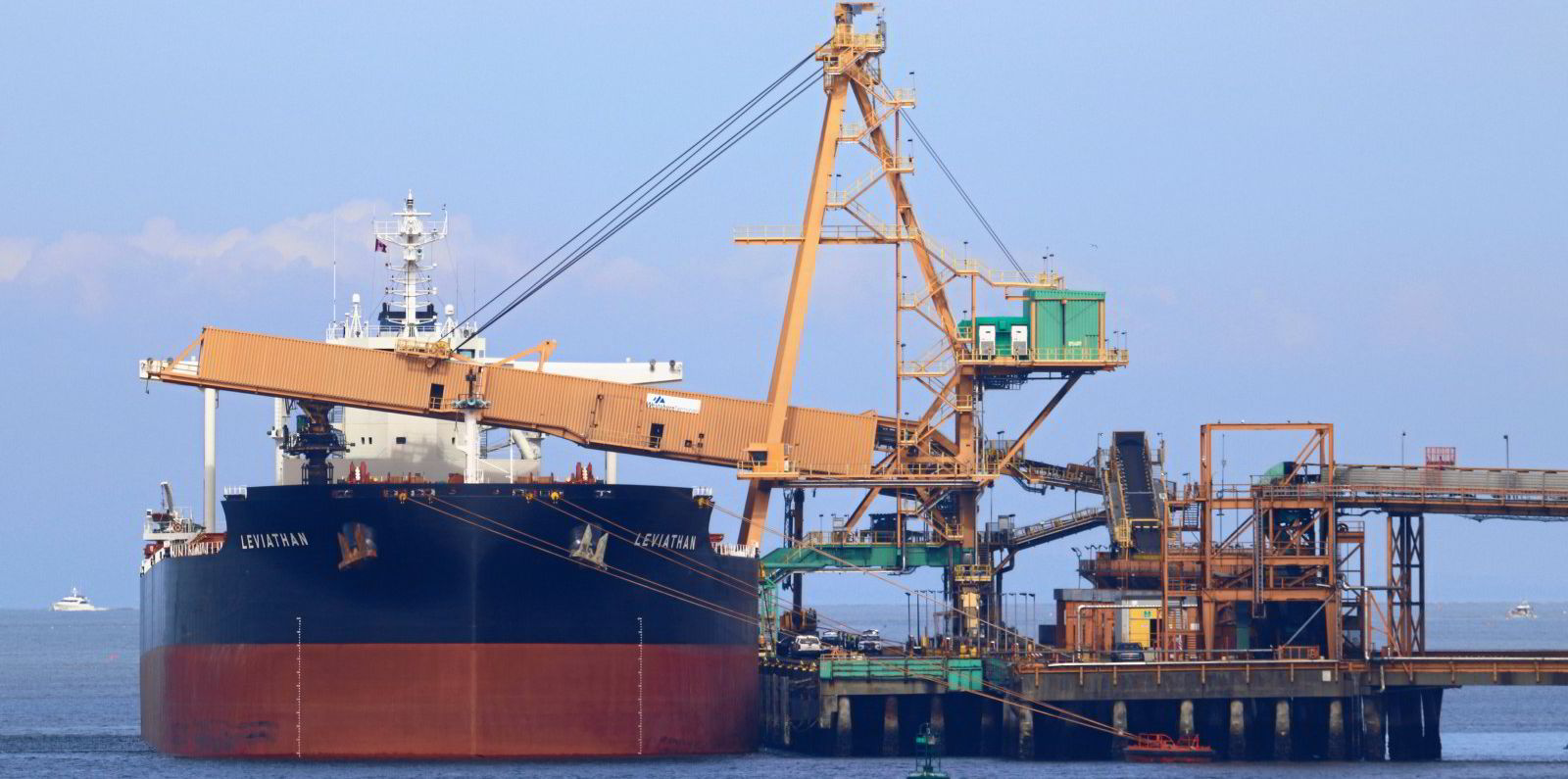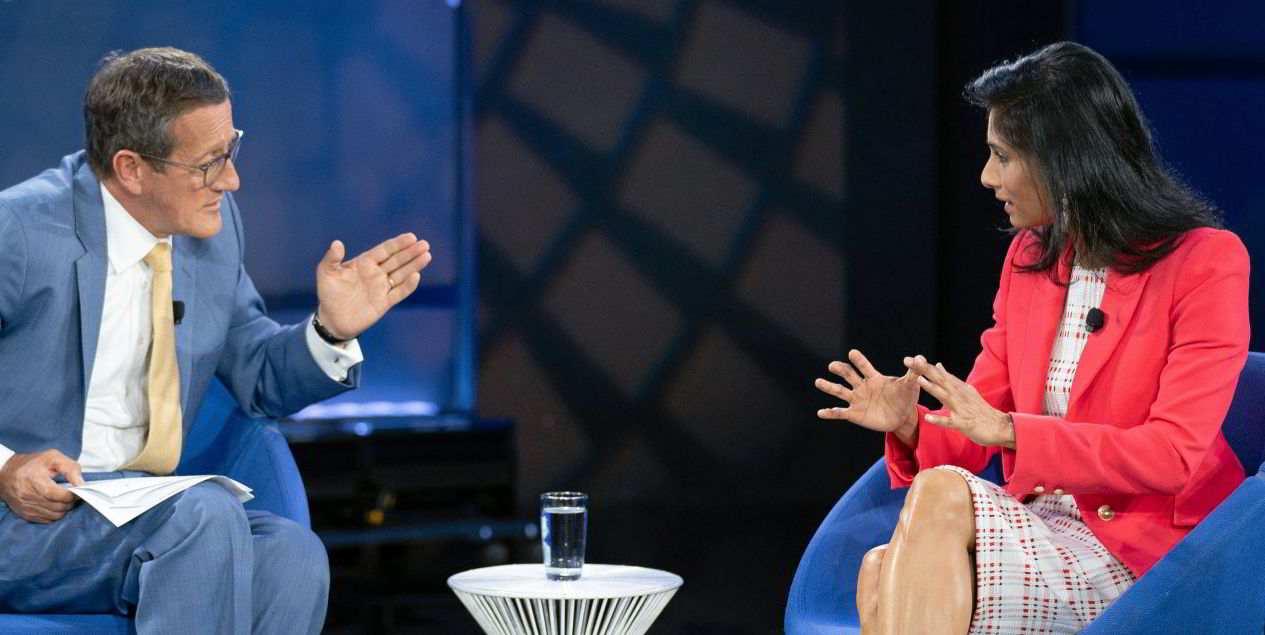Golden Ocean Group plans to switch its focus to the strengthening capesize market for the rest of this year.’
Ulrik Andersen told TradeWinds that the bulker company, which is backed by shipowner John Fredriksen, is seeing interest from US investors — but trade with Russia remains a headache.
Golden Ocean‘s forward bookings for the third quarter stand at just 15% of its capesize days at $38,200 per day on average and 33% of panamax days are booked at $34,900 per day for the period.
As of the market close on Thursday, the Baltic Exchange’s forward curve indicated rates of $37,531 per day for the third quarter and $31,564 per day for the final three months of 2022.
Golden Ocean built a “profitable bridge” from the usually weaker first six months of 2022 to the second half by taking on a high level of cover for its 56 capesizes — and the plan paid off, Andersen said.
“We made more than $10,000 per day more than the market per vessel — times 56 vessels —so it's been pretty significant,” Andersen said.
As the capesize market rises, the focus is changing. Golden Ocean believes the second half of 2022 will be strong.
“Now, it’s time for us to start managing the capes, so we will build our cape position over the rest of the year and will take more cover including managing Q1 next year, just like we did this year,” he said.
Golden Ocean is the world’s biggest listed owner of capesizes, but Andersen said the firm’s 35 panamaxes have been the “unsung heroes” this year so far.
“There’s a lot of general activity, there’s a lot of inefficient allocation of coal,” he commented.
“We’ve been able to take advantage of these rates in the smaller segments while we’re waiting for the cape markets to hopefully really go into peak season.”
Russia
Golden Ocean will not do any new business with Russia, but it remains bound to other contractual obligations.
“We have the same dilemma as all other shipowners. We will not call in Russia, we will not start any new business in Russia and we have discontinued a lot of business via commercial compromises,” he explained.
“But there are situations where you as a shipowner are ordered on a time-chartered vessel to load cargo outside the Black Sea, in a non-dangerous region with non-sanctioned cargoes with non-sanctioned entities. And if you refuse to do that you are in breach of your contract.
“Under those circumstances, we will lift cargoes, but it is not with our goodwill that we are doing it and we could not dream of commencing any business or sending any vessels on spot basis — where we can decide ourselves — to Russia.”
This is not to overstate Golden Ocean vessels’ activity in Russia — “a couple of calls, that’s all we’re talking about”.
But lifting coal from Russian ports like Ust Luga from non-sanctioned entities is legal for now — and Europe’s appetite for Russian coal is as great as ever.
“There’s nothing you can do as a shipowner, whether you like it or not, and it is regrettable, it’s not something that we are happy about. But again, as I say, we have a contractual obligation,” Andersen said.
“We have succeeded in terminating business which was otherwise illegal, but also which we just didn’t want to do because we want to minimise our exposure to this and be on the right side of history.”
Getting out of existing contracts, of course, costs money but Andersen would not comment on how much.
Refinancing
Golden Ocean has just signed a new $275m loan agreement to refinance 14 capesizes, ahead of a debt maturity in 2023.
This will improve the daily cash breakeven rate for these ships by about $1,500 or by $500 for the capesize fleet overall.
Andersen said Golden Ocean grabbed the opportunity to refinance the ships more cheaply and ahead of schedule.
“It also creates a bit of clarity for our investors,” he said. “With no debt maturities, no other material capex [capital expenditure] and no appetite for newbuildings, it means that we have a runway where our focus can really be on paying dividends and returning value to our shareholders.”
Interest from America
Andersen thinks dry cargo shipping is generally a “very attractive” space for investors at the moment, especially in America.
“We have much more [trading] volume now and liquidity in our US shares than we have had in the past and we’re now seeing that value funds with long-term perspectives are really becoming interested in shipping,” he said.
“There are many arguments for that. But one of them that we hear is that Golden Ocean or dry-bulk companies act like a hedge against inflation because you have increasing demand for commodities and you have, of course, steel prices going up, which in itself is good for the [ship] valuations.
“Therefore it’s becoming an interesting place to put your money, certainly when you see the traditional tech shares and IT space not doing very well.”
Golden Ocean, the world’s biggest listed owner of capesize bulkers, recorded first-quarter net earnings of $125.3m, up from $23.5m in the same period of 2021.
Revenue from its 94 bulkers jumped to $265m from $158m in healthy dry cargo markets.
Time-charter equivalent (TCE) earnings came in at $24,778 per day for capesizes and $23,693 for panamaxes and ultramaxes during the three months.
Forward coverage for the second quarter stands at 78% of capesize days at $28,300 per day on average, and 77% of panamax days booked at $27,500 per day.
The owner has covered 15% of its capesize days during the third quarter at $38,200 per day and at $34,900 per day 33% of its panamax days.
Golden Ocean also revealed it had signed a new loan agreement worth $275m to refinance 14 capesizes.






